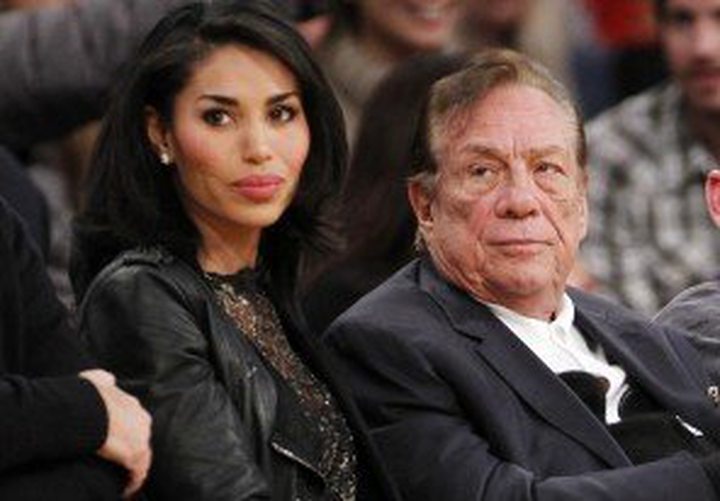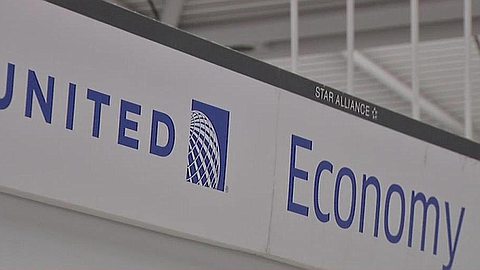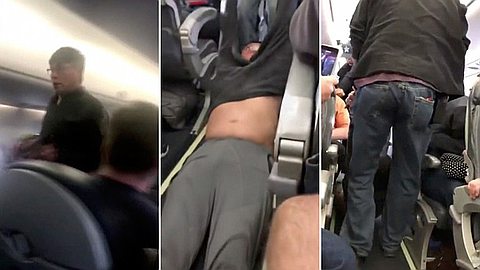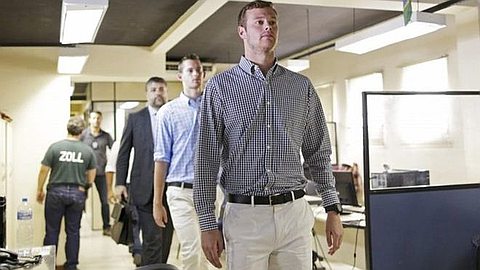Over Four Days, the Donald Sterling Story Led to Seismic Changes to Los Angeles Basketball and the NBA

The tip came into TMZ’s Marina del Rey offices, and though the gossip Web site would not identify the source, by 10 p.m. Pacific Time — 1 a.m. Saturday on the East Coast — the scoop was posted online. By time the sun rose, basketball in Los Angeles had already reached a point of no return.
Clippers owner Donald Sterling’s voice had been captured on tape, a recording that included racist comments spoken to his girlfriend. TMZ posted the audio and what followed were four raucous, volatile days that demonstrated the tremendous speed with which a story can assume critical mass in this media age.
They also hinted at a burgeoning sense of power among the National Basketball Association’s millionaire players, three-quarters of whom are African American, that tested the league’s first-year commissioner, shined a spotlight on an antiquated cultural divide and could ultimately topple a controversial owner with a long history of legal wrangling over race discrimination and sexual harassment allegations.
Everyone from President Obama to Snoop Dogg lined up to vilify the statements made by Sterling, 80, a billionaire real estate mogul who has owned the Clippers since 1981. He had been caught on tape scolding a girlfriend for associating with African American players, including retired NBA great Magic Johnson. “It bothers me a lot that you want to broadcast that you’re associating with black people,” he said, among other things.
On that first day, Sterling’s employees in the Clippers management rose to his defense.
“Mr. Sterling is emphatic that what is reflected on that recording is not consistent with, nor does it reflect his views, beliefs or feelings,” Clippers President Andy Roeser said in a statement. “It is the antithesis of who he is, what he believes and how he has lived his life.”
That marked the last defensive play by the Clippers’ brass.
Almost immediately, Sacramento Mayor Kevin Johnson, a former NBA star who’d been assisting the NBA Players Association in its search for a new executive director, sprang into action. “If the reports are true, there needs to be swift and strong action taken,” he said.
League Commissioner Adam Silver was asleep when TMZ posted the audio and woke up to the news, the first big test of his stewardship. Silver had taken over the league’s top job less than four months earlier, and this season was the first in which the official game balls featured his signature.
He e-mailed Doug Sosnik, a former political director in the Clinton White House who specializes in crisis management and has helped the NBA navigate through choppy waters before. Silver needed help.
“Anything you need,” Sosnik wrote back, according to an account in the National Journal.
Silver, 52, a lanky University of Chicago-trained lawyer who’s been a league executive for more than two decades, had already spoken with Johnson, Clippers Coach Doc Rivers, Chris Paul, the team’s star guard, and also the players’ union president. He was scheduled to meet Saturday evening with reporters in Memphis prior to the Memphis Grizzlies-Oklahoma City Thunder game, but with a developing calamity on his hands, he suddenly had to be a lot more careful choosing his words. The league was still in the early stages of gathering information, Silver said, and he was exploring options available to him and hoped to find a resolution within the next few days.
“All members of the NBA family should be afforded due process and a fair opportunity to present their side of any controversy,” he said, “which is why I’m not yet prepared to discuss any potential sanctions against Donald Sterling.”
In San Francisco that day, Rivers’s team was still processing the news. The Clippers ran through a practice session, and then the coach met with the media afterward at the University of San Francisco’s War Memorial Gymnasium, with NBA legend Bill Russell’s retired jersey hanging on the wall behind him. He tried to talk about basketball, but the questions centered on the growing sideshow that was elbowing its way onto center stage.
No, he hadn’t spoken with Sterling. And no, he didn’t particularly want to, either.
“This is a situation where we’re trying to go after something very important to us -- something we’ve all dreamed about all of our childhoods,” Rivers said. “Donald or anyone else had nothing to do with that dream, and we're not going to let anything get in the way of those dreams.”
Overnight, the controversy grew.
Pressure on NBA to respond
Obama, speaking to reporters during his visit to Malaysia, weighed in, condemning the recorded remarks. The pressure on the NBA to act grew stronger.
“I have confidence that NBA Commissioner Adam Silver — a good man — will address this,” Obama said.
Athletes, celebrities and activists weighed in, too, on Sunday, while league and union officials in New York were exploring their options. Clippers players, meanwhile, had to muster the energy to take the court against the Golden State Warriors that night wearing Sterling’s team’s logo on their chests.
“They’ve been pulled in a million directions over the last 24 hours,” Rivers said.
The entire franchise was trying to reconcile the team’s mission with its owner’s character. Most, the head coach included, joined the organization aware of Sterling's controversial history. Rivers, who is black, signed on to the job last spring, eager to help a long-suffering franchise take a big step forward. He ignored any warning signs about the owner.
“Really didn’t know a lot about that, to be honest,” he said, “and probably should have, I guess.”
Many team employees banded together, more loyal to the team and co-workers than the owner, who was described as “sort of aloof,” by at least one former employee.
“There wasn’t a real connection between him and the staff,” said the ex-employee. “I think the only times there was really a social gathering was at these annual ‘white parties.’ It was this big party at his place in Malibu where he’d invite Clippers staff, celebrities and friends, and everybody had to wear white. There were no exceptions to it. We all felt a little uneasy at those things. It was just a weird scene.”
Clippers players began discussing ways in which they could make a public statement. When they took the court Sunday night in Oakland for Game 4 of their best-of-seven series against Golden State, they removed their team-issued warm-up shirts and dropped them in a pile at center court. During the game, players wore black arm bands and black socks.
Sterling wasn’t in the building, but his estranged wife, Shelly, dressed in all black, was seated courtside, across from the Clippers’ bench. Silver, too, was in attendance. He had met at noon that day with Johnson, the Sacramento mayor, who outlined the players union’s concerns.
The toll of the previous 48 hours was especially evident on the court. The Warriors cruised to a 118-97 win, and the Clippers looked like they’d been tipped upside down and emptied out. Players hit the airport that night, the charter plane pointed south and the team headed toward uncertainty.
“We’re going home now,” Rivers said. “And usually that would mean we’re going to our safe haven. And I don’t even know if that’s true, to be honest.”
‘A defining moment’
On Monday, as most of the country returned to work, the spectacle quickly outgrew the sports world. Big name corporate sponsors began backing out of their agreements with the Clippers, sending a message that the crisis would impact the team’s coffers — and possibly those of the league.
Johnson continued talking with union and league officials, trying to offer reassurance to Clippers players and angry basketball fans, who’d started speculating as to what Silver might do and when he might do it.
“We’re at a defining moment in the history of the National Basketball Association,” Johnson posted to supporters on Facebook.
Momentum for some type of action began to gather steam. Mark Jackson, the head coach of Golden State, the Clippers’ opponent, suggested that Los Angeles fans boycott the following night’s game. “We cannot allow someone with these feelings to profit,” he said.
Players elsewhere around the league demonstrated their solidarity on the court and spoke out against Sterling away from it.
“For us, as basketball players, we’re all brothers,” said LeBron James, the league’s four-time most valuable player.
The Clippers were aware of the support and debating their own options. Despite the lopsided game one night earlier, Rivers canceled practice, hoping his players could mentally recuperate. “If you get your life better, then you can probably do your work better,” he said.
The league office announced a news conference in New York for the following day, but players didn’t know if Sterling would be given a pass, a light fine, a hefty suspension — or something more severe.
Players for both the Warriors and Clippers discussed what to do if the punishment was light. They talked about boycotting the game, walking off the court right before the tip-off. But on Monday night, all they could really do was wait, not sure what fate awaited Sterling or what reaction they'd get when they arrived at their home arena the next night.
“I would be lying if I said I wasn't nervous about what it is going to be like,” said Paul, the team’s seven-time all-star.
Healing process starts
Shortly after 2 p.m. Tuesday, Silver looked out over a packed room of journalists at a New York hotel ballroom. It was his biggest day as commissioner and one that promised to have repercussions for years to come.
“Effective immediately,” he said, “I am banning Mr. Sterling for life.” He added that he would urge the league’s owners to force Sterling to sell his franchise.
In a small room at Los Angeles City Hall, fewer than a dozen people were watching on a television, including Johnson and past and present basketball stars Kareem Abdul Jabbar, Steve Nash and Tyson Chandler. When they heard Silver’s edict, the room erupted in cheers. The punishment was even more severe than union officials had been urging.
The Clippers were about 14 miles away, wrapping up a film session at the team practice facility when Rivers shared the news. There were no cheers and no applause. Just silence. “A collective sigh of relief,” forward Blake Griffin called it.
The team’s front office, which four days earlier had backed Sterling, released a statement saying the Clippers organization “wholeheartedly support and embrace” Silver’s decision.
Later that night the Clippers players put together an emotional, 113-103 win, energizing a sold-out arena and for a couple of hours at least putting the focus back on basketball. But then the horn sounded to end the game, quickly snapping everyone back to reality.
“It’ll still be an issue,” said Clippers guard J.J. Redick. “We know that.”
It was a rapid-fire four days and there are still questions to answer, lessons to parse. Rivers has been noncommittal about his own future and that of the organization beyond this season.
Some players, though, sensed that what they had experienced the last four days may be pointing to a new power dynamic in the league. “That’s the way it should be,” Paul said about the owner-player relationship. “It’s not about us vs. them. I think we have an opportunity to be partners in everything we do moving forward.”
The league’s Board of Governors is expected to vote soon on whether to terminate Sterling’s ownership.
Sterling has made no public statements since Silver handed down the punishment and provided no hints at his course of action.
“Is this over? No, it’s not over,” Rivers said. “But it’s the start of a healing process that we need, and it’s a start for our organization to try to get through this.”





